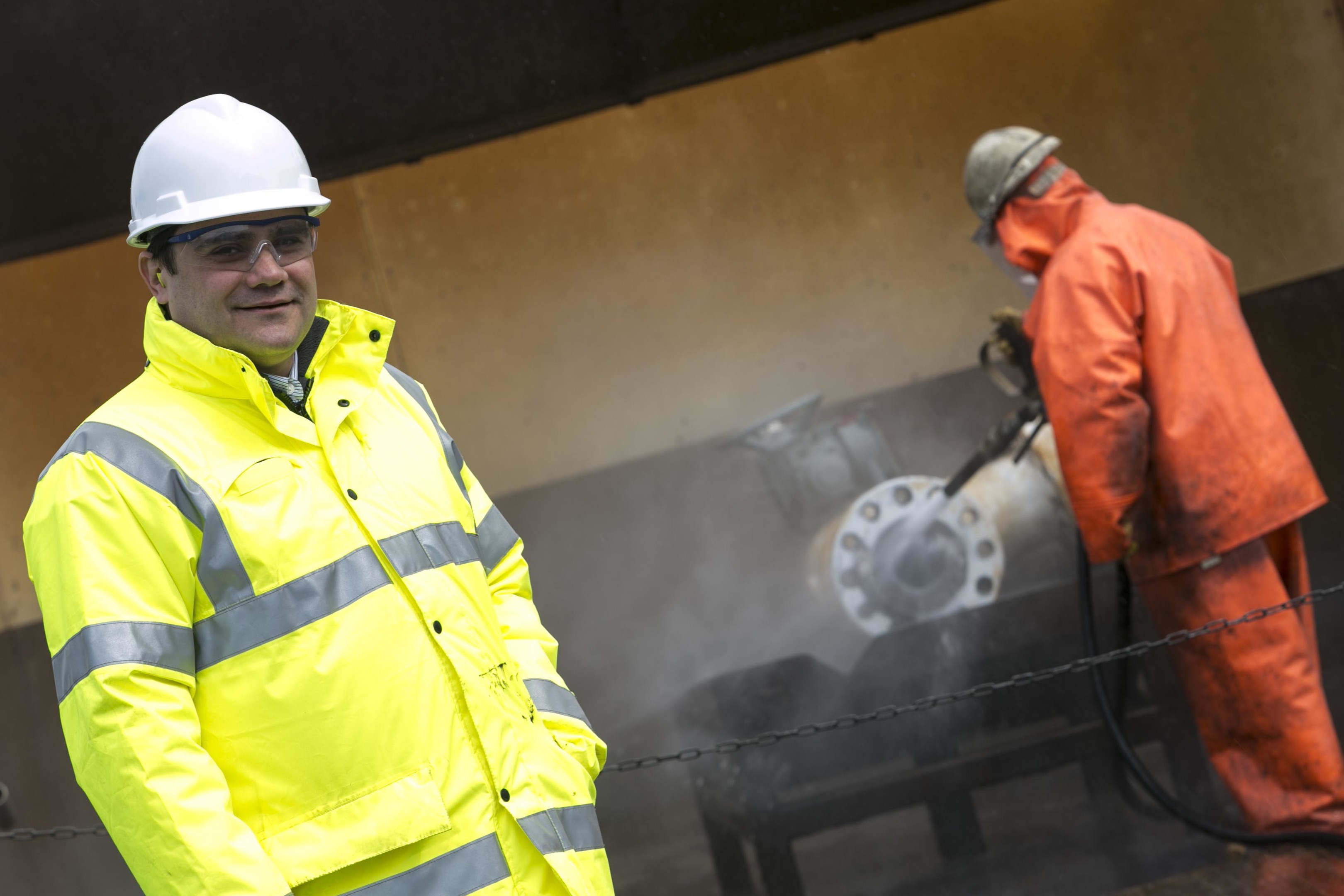According to the Health and Safety Executive, 148 people in the UK died and 78,222 were injured while doing their job last year.
Barnie McNichol is the safety, health, environmental and quality manager at Aberdeen-based Scotoil Services.
The company, which provides environmental management services to the oil and gas industry, has more than 50 staff.
And Mr McNichol’s role involves managing the systems for the company’s health, safety and environmental standards.
He believes one of the biggest problems companies face when considering health and safety is staff attitudes.
“When I started at Scotoil it had a pretty good health and safety management system anyway,” he said. “It had been reviewed by an independent firm as per standard good practice.
“The review identified changes which needed to be made and the management were enthusiastic about implementing these changes to make the workplace safer.
“They also already had a safety committee which met every quarter, with representation from all departments, along with monthly management and section meetings.
“There were also systems in place for changes to be communicated to the workforce.
“The firm also has a very good practice where anyone can suggest improvements and, if they are taken up, the person can win a monetary prize. It certainly makes people focus on sensible suggestions rather than treating health and safety as a joke.
“I’ve focused on improving and changing what Scotoil already has. There are the regular requirements, which we are going above and beyond, and we also have to be aware of how we communicate this to our staff.
“Other firms are perhaps not as willing to engage with their employees. They’ll tell them, ‘This is how it’s done and that’s it’, which is not the best attitude to have.
“You have to really get to know people and get them to understand it’s for their own safety. It’s not there as a box which has to be ticked.”
Another problem can simply be getting employees interested in their own health and safety. Some employees can be put off by what they perceive as complex regulations, especially when they have been doing the job the same way for years.
“It’s like when you drive to work in the morning and you go on to autopilot,” said Mr McNichol. “Often you can’t remember the journey by the time you arrive.
“When some people have been doing the job for years without any incident, you can understand that they might see any health-and-safety changes to their working day as pointless.
It’s my role to make sure they understand these rules are there not only to stop anything from happening in the future but they are happy to act on them
“It’s my role to make sure that not only do they understand the reasons for the rules but also that they are happy to act on them.
“This is our reasoning for investing in the region of £30,000 over 2013 and 2014 in safety awareness training.”
Mr McNichol previously worked in health and safety in the construction sector.
Before that he provided support to offenders for rehabilitation into the community.
He continued: “What I’ve found to be the best way is to get people involved – from the managing director to the line managers to the supervisors to the charge hands and all the staff – is to go round and speak to everyone. This means they know I’m not some unapproachable, ticking-boxes health and safety guy, but they can chat to me about their day-to-day job and we can also look at any improvements or issues.
“This means reporting any accidents or incidents is as positive an experience as it can be, rather than them automatically not wanting to do it as they’ll get told off.
“Obviously people are human and make mistakes, perhaps by trying to take shortcuts, and of course sometimes there can be ramifications for that.
“But if you make the reporting process about learning to stop any potentially dangerous incident that encourages them to willingly take part.
“We’ve worked hard to simplify our health-and-safety and environmental messages for people. If they are easy to understand you’re more likely to adhere to them.
“We also find out the root cause of accidents and encourage people to think of ways to prevent them from happening again.
“We have a holistic approach. It might be my job to ensure we comply with the regulations, but we want everyone to be involved by promoting a positive culture of health, safety and environmental issues.
“So long as people here are talking about health and safety, I’m happy.
“Even if they’re moaning to me about something, then at least they’re talking about it and taking it seriously rather than just carrying on in the same old way.
“The guys here have been brilliant and have a very positive attitude towards health, safety and environmental issues. There will be lots of new regulations in the near future so it’s great to have them on board. They’ll be involved in ensuring we not only adhere to these regulations but we go above and beyond – the same as we do for the work we carry out for clients.”
